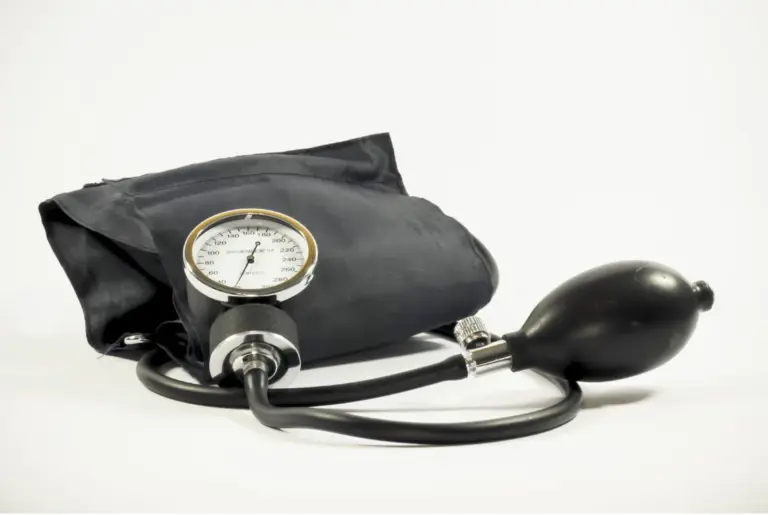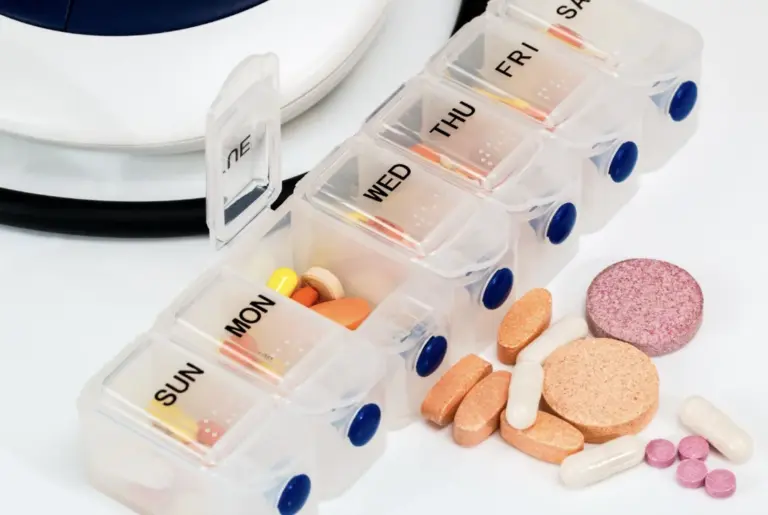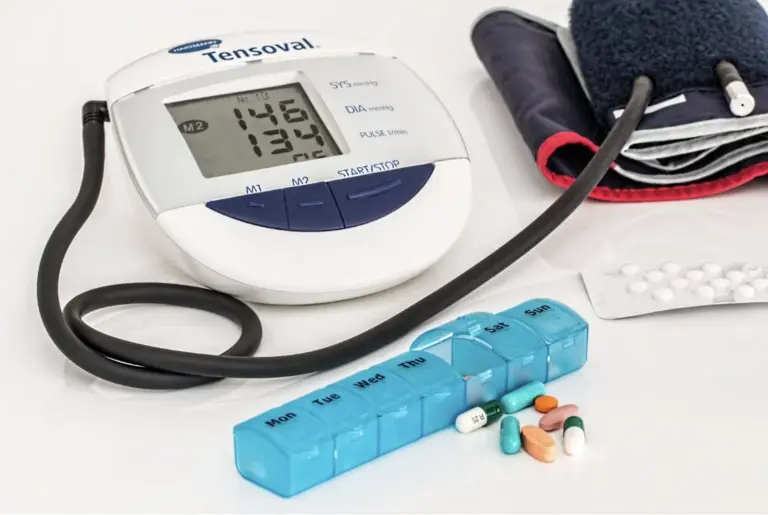What are Vasodilators?
Vasodilators are a class of medications known for their ability to widen blood vessels, which results in increased blood flow through the circulatory system. This pharmacological effect is particularly valuable in managing various cardiovascular conditions, as vasodilators can reduce blood pressure, alleviate angina symptoms, and improve overall blood circulation. By calming the muscles in the walls of blood vessels, vasodilators promote the expansion of these vessels, leading to improved oxygen and nutrient delivery to vital organs and tissues.
How do vasodilator drugs work?
Vasodilator drugs are prescribed to manage various cardiovascular conditions, including hypertension (high blood pressure), angina (chest pain), and heart failure.
Vasodilators work through different mechanisms, depending on the specific type of drug. Here are some common ways vasodilators drugs use to exert their effects:
- Relaxing Smooth Muscle: Many vasodilators, such as calcium channel blockers and direct-acting smooth muscle relaxants, act directly on the smooth muscle cells in blood vessel walls. They block calcium entry into these cells, leading to the relaxation of the muscle and the dilation of the blood vessels. This results in decreased resistance to blood flow and a subsequent drop in blood pressure.
- Stimulating Nitric Oxide Release: Nitric oxide is a potent vasodilator naturally produced by the body. Some vasodilator drugs, like nitroglycerin, stimulate the release of nitric oxide in blood vessel walls, leading to the relaxation of smooth muscle and vasodilation.
- Opening Potassium Channels: Certain vasodilators, such as potassium channel openers, work by opening potassium channels in blood vessel cells. This allows potassium ions to flow out of the cells, leading to hyperpolarization and relaxation of the smooth muscle, resulting in vasodilation.
- Blocking Sympathetic Nervous System Activity: Alpha-1 adrenergic blockers and other sympathetic nervous system inhibitors act by blocking the effects of adrenaline and noradrenaline, which are responsible for blood vessel constriction. By inhibiting sympathetic nervous system activity, these drugs cause blood vessel dilation and reduce blood pressure.
Vasodilator drugs can be used alone or in combination with other antihypertensive medications to achieve blood pressure control.
What do vasodilators treat?
These medications play a crucial role in managing the following medical conditions:
- Hypertension (High Blood Pressure): One of the primary uses of vasodilators is in the management of hypertension. By relaxing the smooth muscle cells in blood vessel walls, these medications reduce resistance to blood flow, and ultimately lower blood pressure. Vasodilators are often prescribed as part of a comprehensive treatment plan to achieve optimal blood pressure control.
- Angina (Chest Pain): Vasodilators are effective in treating angina, a condition characterised by chest pain or discomfort due to reduced blood flow to the heart muscles. By dilating coronary arteries and improving blood flow to the heart, vasodilators help relieve angina symptoms and reduce the frequency and intensity of chest pain episodes.
- Heart Failure: Some vasodilators, especially those that primarily dilate veins, are used in the management of heart failure. By reducing the workload on the heart and improving venous return, these medications can alleviate symptoms of heart failure, such as shortness of breath and fluid retention.
- Raynaud’s Disease: Vasodilators are sometimes prescribed to individuals with Raynaud’s disease, a condition characterised by episodes of reduced blood flow to the fingers and toes, leading to coldness and colour changes in the skin. By promoting blood vessel dilation, vasodilators can help alleviate symptoms and improve circulation in affected areas.
- Pulmonary Hypertension: Vasodilators are also utilised in the treatment of pulmonary hypertension, a condition where blood pressure in the pulmonary arteries is abnormally elevated. By dilating the pulmonary arteries, these medications help reduce pressure and improve blood flow in the lungs.
- Erectile Dysfunction: Some vasodilators, such as phosphodiesterase type 5 (PDE5) inhibitors, are used to treat erectile dysfunction. These medications promote blood flow to the penis, aiding in achieving and maintaining erections.
Patients must understand the importance of taking blood pressure medicines regularly and adhering to the treatment plan. Regular use of these medications ensures consistent blood vessel dilation and effective management of underlying cardiovascular conditions.
Uses for Vasodilators
Vasodilators are medications used to treat various cardiovascular conditions, particularly hypertension (high blood pressure). They work by giving relaxation to blood vessels, leading to improved blood flow and reduced blood pressure. These drugs are also essential for managing many conditions such as hypertension, angina, heart failure, pulmonary hypertension, Raynaud’s disease, and erectile dysfunction.
These medications work in combination with other drugs and if you are wondering if ‘can you skip blood pressure medication’ the answer is a resounding NO. Vasodilators play a crucial role in managing hypertension, and skipping blood pressure medication can have serious consequences.
What are the types of vasodilator drugs?
Vasodilators are a diverse class of medications that can be classified into three main categories based on their specific action:
- Arterial Dilators: These vasodilators primarily target the arteries, leading to relaxation and widening of the arterial walls. By dilating arteries, these types of antihypertensive drugs reduce the resistance to blood flow and lower blood pressure. Arterial dilators are commonly prescribed as part of antihypertensive drug regimens to manage hypertension effectively.
- Venous Dilators: Venous dilators focus on the veins, causing relaxation and dilation of venous blood vessels. This leads to increased venous capacity and reduced venous return to the heart. By decreasing the volume of blood returning to the heart, venous dilators help reduce the workload on the heart and lower blood pressure.
- Mixed Dilators: As the name suggests, mixed dilators have a combined action, affecting both arterial and venous blood vessels. These medications exert a comprehensive vasodilatory effect on the cardiovascular system, contributing to overall blood pressure reduction and improved blood flow.
Common Vasodilator Types & Examples
Vasodilators are medications that widen blood vessels. Here are the main types with examples:
- Arterial Dilators: Hydralazine, Minoxidil, and Nitroglycerin (used for arterial vasodilation in specific cases).
- Venous Dilators: Nitroglycerin (mainly used for venous vasodilation to reduce preload on the heart).
- Mixed Dilators: ACE inhibitors (e.g., Enalapril, Lisinopril), Calcium Channel Blockers (e.g., Amlodipine, Nifedipine), and Alpha-Blockers (e.g., Doxazosin, Prazosin) are examples of mixed dilators that affect both arterial and venous blood vessels.
Benefits of Vasodilators Medication
Vasodilators are a class of medications with numerous benefits in managing various cardiovascular conditions. Some of the key benefits of vasodilators drugs include:
- Lowering Blood Pressure:The capacity of vasodilators to successfully reduce blood pressure is one of its main advantages. These drugs lower blood flow resistance by easing the muscles in blood vessel walls, which lowers blood pressure levels. For those who have hypertension (high blood pressure), this is especially advantageous because it lowers the risk of cardiovascular problems like a heart attack and stroke.
- Heart Failure Management: Certain vasodilators, especially those that predominantly dilate veins, are used in the management of heart failure. By reducing the resistance in the veins, these medications facilitate easier blood return to the heart, helping to improve heart function and alleviate symptoms of heart failure, such as shortness of breath and fluid retention.
- Pulmonary Hypertension Treatment: Vasodilators are essential in treating pulmonary hypertension, a condition where blood pressure in the pulmonary arteries is abnormally elevated. By relaxing blood vessels in the lungs, these drugs reduce the strain on the right side of the heart and improve blood flow through the lungs.
- Improved Peripheral Circulation: In cases of Raynaud’s disease, where blood flow to the fingers and toes is restricted, vasodilators are prescribed to improve peripheral circulation. By promoting blood vessel dilation, these medications help relieve symptoms of coldness and colour changes in the extremities.
- Angina Relief: Vasodilators provide relief for individuals with angina, a condition characterised by chest pain or discomfort due to reduced blood flow to the heart muscles. By dilating coronary arteries, these medications increase blood supply to the heart, alleviating angina symptoms and improving overall cardiovascular function.
- Treatment of Erectile Dysfunction: Certain vasodilators, such as phosphodiesterase type 5 (PDE5) inhibitors, are used to treat erectile dysfunction by promoting blood flow to the penis, enabling and maintaining erections.
- Enhanced Exercise Tolerance: In some cases, vasodilators can improve exercise tolerance in individuals with certain cardiovascular conditions by enhancing blood flow to the muscles during physical activity.
- Reduced Cardiac Afterload: Vasodilators can reduce the afterload on the heart, which is the force against which the heart pumps blood. This helps the heart work more efficiently and can be beneficial in various heart conditions.
Side effects of Vasodilators Medication
While these drugs offer significant benefits, they may also be associated with certain side effects. Patients need to be aware of potential side effects and promptly communicate any concerns to their healthcare providers.
Some common side effects of vasodilators include:
- Headache: Headaches are a frequent side effect of vasodilator medications. The widening of blood vessels can lead to increased blood flow to the brain, causing headaches in some individuals
- Flushing: Flushing or redness of the skin may occur due to the dilation of blood vessels near the skin’s surface. This can cause a warm sensation and temporary redness of the face, neck, or chest.
- Dizziness and Lightheadedness: Vasodilators can cause a sudden drop in blood pressure, leading to feelings of dizziness or lightheadedness, especially when standing up quickly.
- Nausea and Vomiting: Some individuals may experience nausea and vomiting as a side effect of vasodilator medications.
- Fluid Retention: In certain cases, vasodilators can cause fluid retention, leading to swelling in the ankles, feet, or hands.
- Heart Palpitations: Some patients may experience irregular or rapid heartbeats, also known as heart palpitations.
- Increased Heart Rate: Vasodilators may cause an increase in heart rate, known as tachycardia, in some individuals.
- Nasal Congestion: Vasodilators may cause nasal congestion or a stuffy nose as a side effect.
- Orthostatic Hypotension: Orthostatic hypotension refers to low blood pressure upon standing, which can lead to feelings of dizziness or fainting.
- Sexual Dysfunction: In some cases, vasodilators may cause sexual side effects, such as erectile dysfunction or decreased libido.
In a Nutshell
Managing cardiovascular conditions like hypertension is of utmost importance to ensure overall health and well-being. While understanding the symptoms, causes, and treatment options for high blood pressure is essential, it is equally crucial to have access to reliable resources and support systems.
Fortunately at BP in Control, you can have access to many valuable resources for information and assistance in your journey towards better heart health. Through our online portal “Find a Physician,” you can easily connect with highly qualified physicians in your area. Gone are the days of endless searching; through our simplified process, you have access to the best healthcare professionals at your fingertips.
Empower yourself with knowledge and the right medication – because a healthier heart starts with you.
Disclaimer
The information contained in this article is to educate, spread awareness in relation to hypertension and other diseases to the public at large. The contents of this article are created and developed by BPinControl.in through its authors, which has necessary, authorisations, license, approvals, permits etc to allow usage of this articles on The Website. The views and opinions expressed in this article are views, opinions of the respective authors and are independently endorsed by doctors. Although great care has been taken in compiling and checking the information in this article, The Website shall not be responsible, or in any way liable for any errors, omissions or inaccuracies in this article whether arising from negligence or otherwise, or for any consequences arising therefrom. The content of this article is not a substitute for any medical advice. The Website shall not be held responsible or liable for any consequence arising out of reliance on the information provided in the article.




